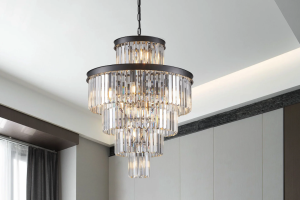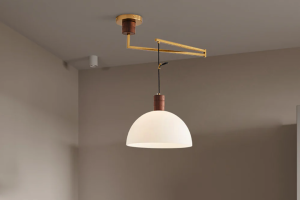Introduction
In recent years, the popularity of spandrel ceiling design has grown exponentially. This is due to its aesthetic appeal and functionality. Spandrel ceilings provide a seamless transition between the walls and ceiling, making the room appear taller, larger, and more spacious. Modern spandrel ceiling designs have taken inspiration from contemporary architecture, allowing for unique and innovative designs that are truly a work of art. In this article, we will explore the world of modern spandrel ceiling design and how it can elevate interior spaces.
The Evolution of Spandrel Ceilings
Spandrel ceilings have been used since the Ancient Greeks and Romans. These ceilings were made of marble or plaster, and were often decorated with intricate designs and patterns. In the early 20th century, spandrel ceilings were used in Art Deco architecture. These ceilings were characterized by geometric patterns and bold, contrasting colors.
Today, spandrel ceilings have evolved to become more minimalistic and sophisticated. The focus is on clean lines, subtle textures, and neutral colors. Modern spandrel ceilings are often made of materials such as gypsum, wood, or metal, allowing for a wide range of design options.
The Benefits of Spandrel Ceilings
Spandrel ceilings offer many benefits beyond their aesthetic appeal. They can improve the acoustics of the room, reduce noise pollution, and enhance the lighting. They are also a great way to hide unsightly fixtures, such as plumbing pipes, air conditioning ducts, and electrical wiring. In addition, spandrel ceilings can be used to create mood and ambiance in a room, by adjusting the lighting and color.
Design Elements of Modern Spandrel Ceilings
Modern spandrel ceilings are a fusion of art, architecture, and engineering. They are designed to make a statement, while also serving a practical purpose. Some of the design elements of modern spandrel ceilings include:
Texture
Texture is a key element in modern spandrel ceilings. A textured ceiling can create depth and interest, as well as hide imperfections. Popular textures include stucco, plaster, and wood.
Lighting
Lighting is essential in spandrel ceiling design. Recessed lighting can create a soft and subtle effect, while pendant lighting can make a bold statement. Many modern spandrel ceilings incorporate LED lighting, which is energy-efficient and long-lasting.
Color
Color is another important design element in spandrel ceilings. Neutral colors such as white, beige, and gray are popular, as they create a clean and modern look. However, bold and vibrant colors can also be used to create a focal point in the room.
Examples of Modern Spandrel Ceiling Design
Here are some examples of modern spandrel ceiling design:
Minimalistic
A minimalistic spandrel ceiling is characterized by clean lines, neutral colors, and subtle textures. This design is perfect for a modern and elegant look.
Natural
A natural spandrel ceiling incorporates natural materials such as wood or stone. This design is perfect for a rustic or earthy look.
Dramatic
A dramatic spandrel ceiling incorporates bold colors, unique textures, and statement lighting. This design is perfect for a contemporary or artistic look.
Conclusion
Spandrel ceiling design has come a long way from its origins in ancient Greece and Rome. Modern spandrel ceilings are a fusion of art, architecture, and engineering, designed to make a statement while also serving a practical purpose. With their many benefits and design options, spandrel ceilings are a perfect way to elevate interior spaces.




More Stories
The Elegance of Spiral Staircase Chandeliers: A Perfect Blend of Form and Function
The Elegance of Sconce Hallways: Illuminating Your Passages with Style
Illuminate Your Space with Adjustable Wall Lights in the UK